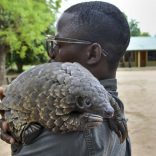Mozambique: Population growth in Bazaruto Park worries authorities
Mozambique: 15 killed by wild animals in Mágoè National Park

FILE - For illustration purposes only. [File photo: Parque Nacional de Mágoè ]
The Mozambican authorities recorded, over the first six months of this year, 15 deaths and 10 serious injuries in Mágoè National Park, in the central province of Tete, as a result of attacks by wild animals, especially elephants.
This number represents an increase when compared to the same period of 2024, when seven cases were recorded.
Júlia Mwito, the Administrator of Magoe National Park, told reporters recently that over 35,000 households are currently living within the park’s boundaries, which has contributed to the increase in human-wildlife conflict.
She explained that the scarcity of food and water within the park, which is a result of drought caused by the El Niño climate phenomenon, is pushing elephants into agricultural and riverside areas, where they clash with the population.
“The forest is emptying. Elephants can’t find enough food and end up searching for food in vegetable gardens. Furthermore, there is water on the banks of the reservoir and near the rivers, which attracts them even more”, she said.
Mwito said that awareness-raising activities are underway among local communities “to promote practices of safe coexistence with the animals.”
“We advise households not to try to scare away elephants, because they don’t have the capacity to do so. It’s better to lose a harvest than a life. Patience and distancing are the best strategies”, she said.
Mwito also revealed that the park has seen a considerable reduction in poaching, estimated at around 40%. This decrease has contributed to a greater presence of visible animals, boosting eco-tourism in the region.
“This is an area with enormous tourism potential, which should be better explored to generate revenue and enhance the national natural heritage”, she added.












Leave a Reply
Be the First to Comment!
You must be logged in to post a comment.
You must be logged in to post a comment.